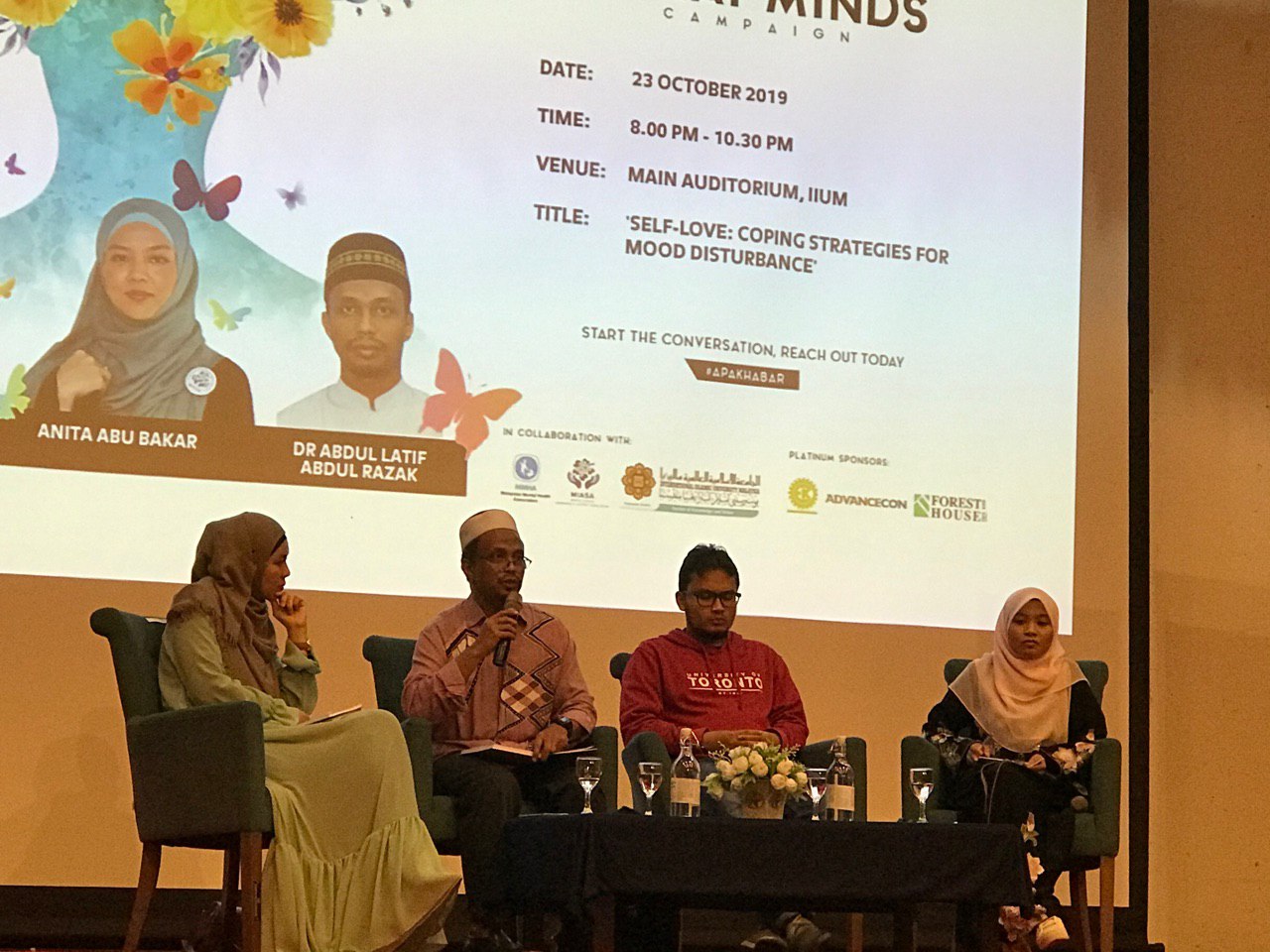By Aida Najwa
GOMBAK, 25 October 2019 – “We are not taught at a young age how to deal with emotions when we break down or to cope with mental problems,” a psychology forum was told on Wednesday (23 October).
A youth advocator, Aiman Azlan, touching on the topic self-love, said that we tend to embrace the environment of putting the group first before ourselves and it normally ends up with everything about others, not about ourselves anymore.
Hence, he emphasised the importance of having a balance, the middle ground between two extremes – others and ourselves – “as the idea of self-love is not selfless, not selfish but just balance”.
A forum entitled “Self-Love: Coping Strategies For Mood Disturbance” was held at Main Auditorium, in conjunction with Mental Health Month Programme 2019 by the Counselling and Career Services Centre, IIUM, to expose students with the right coping strategies to deal with mental illness or disturbances.
It was sponsored by Yayasan Sime Darby, Sime Darby Property and Mental Illness and Support Association (MIASA),
Sharing her experience recovering from anxiety disorder, Madam Anita Abu Bakar, who is the President of MIASA, remarked that mental illness patients are not attention seekers and some people are better at hiding it.
“People who have either suicidal thoughts, behaviours and tendencies do not want to die but they just want the pain to the end,” she added.
Concerning self-love, Madam Anita paid heed to the crucial need of self-care on everyday basis. She stressed to the audience “to always allocate time for ourselves by just resting, having enough sleep, eat on time, make time to do what we like, and to do exercise everyday, of which she also noted on making it a habit.
Meanwhile, Head of Department of General Studies, Kulliyyah of Islamic Revealed Knowledge and Human Sciences (KIRKHS), Dr. Abdul Latif Abdul Razak, said it is advisable to practice a morning ritual such as starting the day with doa’ and asking ourselves with the morning power question, “What do I have now?” in order to bring gratitude to God that we have something.
Asked on relations between spirituality and self-compassion, Dr. Abdul Latif said, “We are jahil. In order to be alim, look for the Al-Alim, The All-Knowing. We are weak. In order to be strong, look for the Strong.”
Anita Abu Bakar also told the audience that MIASA, a non-profit organisation, have peers, spiritual healers and clinical psychiatrists who welcome those who are seeking for help. ***

